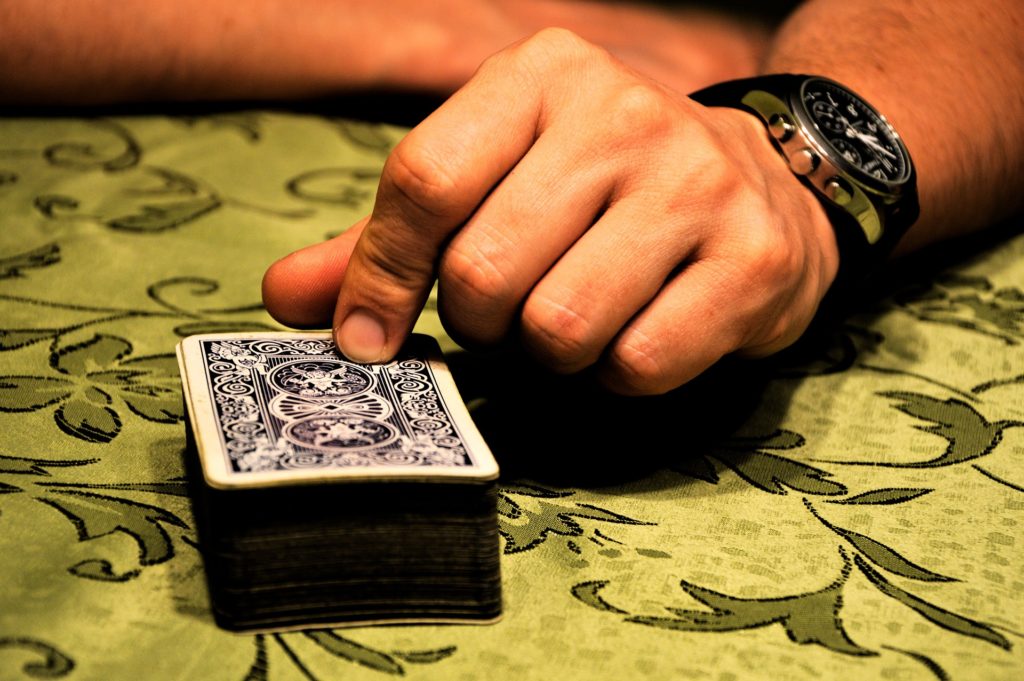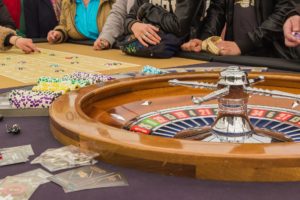
Gambling addiction, or compulsive gambling, is essentially the uncontrollable urge to keep gambling despite the negative influence it can cast upon one’s life. Gambling is essentially the willingness to risk something valuable in expectation of attaining something of an even greater value. Hence, this also includes playing lottery tickets and placing bets.
According to the National Council on Problem Gambling, around two to three percent of Americans are prone to gambling addiction. That’s around 6 million adults and about half a million teens.
It’s not just about the money
Researchers have always questioned why people gamble when “the house always wins.” After all, the odds are pre-arranged to ensure a steady profit for the casino or bookmaker.
Natasha Schull, associate professor at MIT’s Program of Science, Technology and Society unearthed a completely different motivation. In her book, Addiction by Design, Schull delved into the lives of pathological gamblers and discovered that it was more about the pursuit that allowed gamblers to escape the world, “to keep playing, to stay in that machine zone where nothing else mattered.”
“Everyone believes that what’s driving the compulsive gamblers is a desire to make money. The ‘zone is really what’s driving this experience. The idea of winning money falls away when you get to that point of addiction,” explained Schull.
A state of mind
Various recent studies from the realms of psychology, neuroscience and genetics have illustrated significant similarities between gambling and drug addiction.
Our brain consists of a series of circuits, known as the reward system, that link various brain regions involving memory, movement, pleasure and motivation. Any lively activity releases a chemical messenger called dopamine, creating a sense of satisfaction.
When stimulated by addictive drugs or as in the case of problem gambling, the thrill, the reward system disseminates 10 times more dopamine than it would otherwise.
 Compulsive gamblers chase riskier ventures just like a substance addict craves greater doses to get high. Similarly, both groups experience withdrawals when distanced from the desired thrill or substance.
Compulsive gamblers chase riskier ventures just like a substance addict craves greater doses to get high. Similarly, both groups experience withdrawals when distanced from the desired thrill or substance.
Certain individuals are especially vulnerable to both substance addiction and problem gambling due to innately underactive reward circuitry. This may help understand why these individuals seek extraordinary thrills in the first place.
Neuroscientists have also discovered that similar brain circuits are affected in an identical manner by drugs and gambling.
A Yale University study from 2003 and a 2012 study at the University of Amsterdam tested pathological gamblers to measure their impulsivity. Unusually low levels of electrical activity were detected in prefrontal brain regions, responsible for the assessment of risks and restraining impulses. Similar inactivity in prefrontal cortex was detected in drug abusers.
Understanding compulsive gambling has redefined addiction itself. Instead of a dependency on a chemical, addiction is now understood as the continuous pursuit of a rewarding experience despite significant repercussions.
“The past idea was that you need to ingest a drug that changes neurochemistry in the brain to get addicted, but we now know that just about anything we do alters the brain,” explained Timothy Fong, a psychiatrist and addiction expert at the University of California, Los Angeles. “It makes sense that some highly rewarding behaviors, like gambling, can cause dramatic [physical] changes, too.”
Symptoms
A constant preoccupation with gambling
- Building a “tolerance” to the amount of money being spent to achieve the same amount of thrill
- Unsuccessfully trying to curb one’s gambling tendencies and feeling irritable during the process
- Feeling guilty after gambling sessions
- Using gambling as an excuse to avoid problems or escape feelings of guilt, anxiety or depression
- Chasing losses which means an uncontrollable compulsion to try to win back lost money by gambling even more
- Hiding the extent of gambling from loved ones
- Risking or compromising important relationships or school or work for gambling
- Selling possessions to get more money or pay debts
- Desperation to gain money for gambling to a point of resorting to theft or fraud
- Being forced to ask others to haul you out of financial troubles owing to excessive gambling
Causes
The exact causes of gambling addiction still remain ambiguous. It is, for now, known as the result of a combination of biological, genetic and environmental factors.
Risk factors
Even though most people who engage in gambling may never develop an addiction, there are certain factors that can put an individual at risk of developing a gambling disorder.
Mental health disorders. Problem gamblers often deal with substance abuse problems, personality disorders, depression or anxiety as well. Associations have also been drawn with bipolar disorder, obsessive-compulsive disorder (OCD) or attention-deficit/hyperactivity disorder (ADHD).
Age. Younger and middle-aged individuals are found to be more at risk. Gambling during childhood or the teenage years may set precedent for developing a gambling disorder later in life.
Sex. Men typically have higher rates of gambling addiction than women. Women, most likely initiate gambling later in life and may become addicted more quickly. Lately, gambling patterns in both genders are becoming increasingly similar.
Peer pressure. Family or friends dealing with a gambling problem may increase susceptibility.
Certain medications. Dopamine agonists, typically used to treat Parkinson’s disease and restless leg syndrome, have demonstrated an unusual side effect that may induce compulsive behaviors, including gambling, in some people.
Particular personality characteristics. Certain traits like ruthlessness, being a workaholic, spontaneity, anxiety/edginess or being easily bored may increase a person’s risk of compulsive gambling.
Treatment
 Admitting one’s addiction to gambling is probably the hardest part, making treatment of compulsive gambling all the more challenging. This acknowledgment is a major component of treatment.
Admitting one’s addiction to gambling is probably the hardest part, making treatment of compulsive gambling all the more challenging. This acknowledgment is a major component of treatment.
Treatment for compulsive gambling may involve an outpatient program, inpatient program or a residential treatment program, depending on your needs and resources.
Treatment for compulsive gambling may include:
- Therapy. Behavior therapy, cognitive behavioral therapy (CBT) and family therapy have shown positive results. Behavior therapy systematically exposes the patients to the behavior they want to unlearn and teaches skills to reign in the urge. CBT helps identify and replace irrationality and negativity. Family therapy encourages rebuilding lost relationships and confidence.
- Medications. Antidepressants and mood stabilizers have been rendered effective to address co-occurring depression, OCD or ADHD. Medications called narcotic antagonists, useful in treating substance abuse, may also help treat compulsive gambling.
- Self-help groups. Often communicating with others who are fighting a similar battle may help in treatment. There are various self-help groups, such as Gamblers Anonymous and other resources that encourage opening up about your struggles and gaining perspective by listening other people talk about their journey.
 About the Author:
About the Author:
A journalist and social media savvy content writer with wide research, print and on-air interview skills, Sana Ahmed has previously worked as staff writer for a renowned rehabilitation institute focusing on mental health and addiction recovery, a content writer for a marketing agency, an editor for a business magazine and been an on-air news broadcaster.
Sana graduated with a Bachelors in Economics and Management from London School of Economics and began a career of research and writing right after. The art of using words to educate, stir emotions, create change and provoke action is at the core of her career, as she strives to develop content and deliver news that matters.
References:
[1] http://www.mayoclinic.org/diseases-conditions/compulsive-gambling/home/ovc-20258391
[2] http://news.mit.edu/2012/understanding-gambling-addiction-0904
[3] https://www.scientificamerican.com/article/how-the-brain-gets-addicted-to-gambling/
The opinions and views of our guest contributors are shared to provide a broad perspective of addictions. These are not necessarily the views of Addiction Hope, but an effort to offer discussion of various issues by different concerned individuals.
We at Addiction Hope understand that addictions result from a combination of environmental and genetic factors. If you or a loved one are suffering from an addiction, please know that there is hope for you, and seek immediate professional help.
Reviewed By: Jacquelyn Ekern, MS, LPC on April 2, 2017
Published on AddictionHope.com
